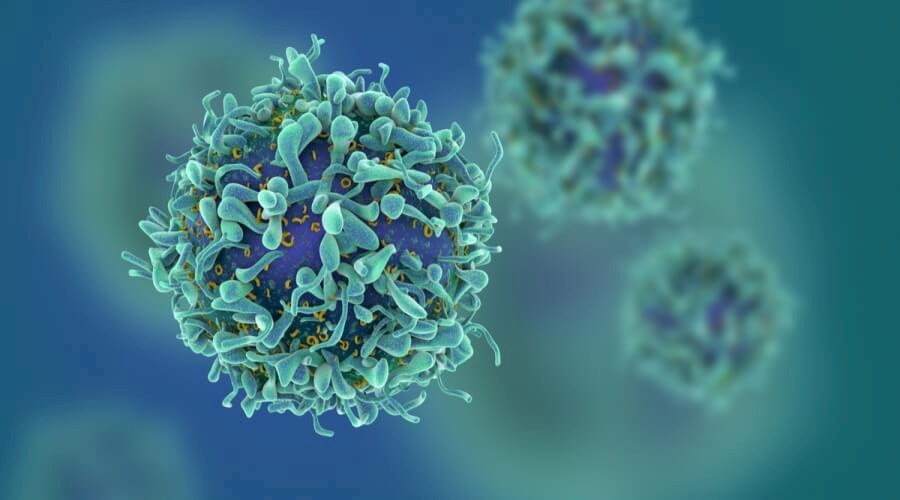
Researchers Discover Drug that Attacks Cancer Cells
SadaNews - Researchers have discovered a new drug that could become a powerful weapon against head and neck cancers, as the new drug attacks cancer cells from within by damaging the mitochondria, which are the powerhouses of cells.
The study was conducted by researchers at the Hollings Cancer Center at the University of Mississippi in South Carolina, USA, and the results were published in the journal Cancer Research on September 1 of this year, as reported by EurekAlert.
The research team aims to curb tumor growth in squamous cell carcinoma of the head and neck, a cancer that develops in the cells lining the head and neck, such as the nose, mouth, and throat.
This highly aggressive type of cancer is resistant to treatment, and many patients receiving currently available treatments experience a recurrence of the cancer. Even when these treatments are effective, they can have side effects as they destroy both cancerous and non-cancerous cells, leading to debilitating side effects.
The researchers developed and tested a new compound called LCL768, which is a synthetic form of ceramide (a naturally occurring lipid molecule in cells).
Ceramides are crucial for the normal function of cells and have been shown to trigger cell death under stress; many head and neck cancer cells suffer from a deficiency of these beneficial lipids, which promotes aggressive tumor growth.
The drug's effectiveness depends on its ability to increase levels of a specific ceramide called "C18-ceramide" within the mitochondria of cancer cells.
Draining Energy Sources
A process called mitophagy begins when levels of C18-ceramide rise, and the cells remove damaged or unnecessary mitochondria.
Cancer cell growth relies heavily on mitochondria, and when they are destroyed, cancer cells run out of energy and die.
Dr. Basim Ougritmen, the assistant director of basic sciences at Hollings who led the study, said: "LCL768 essentially cuts off the energy supply to cancer cells; once the mitochondria are gone, the cells cannot grow or survive."
LCL768 disrupted a major metabolic pathway in addition to destroying mitochondria; it did so by blocking fumarate, an important molecule in the cell's energy cycle. Without fumarate, the energy production of cancer cells weakens, and the combined effects of C18-ceramide accumulation and fumarate depletion resulted in a dual attack that led to cancer cell death.
Ougritmen explained: "Our results reveal a metabolic vulnerability in these cancer cells; by stimulating the process of mitochondrial autophagy and depleting fumarate, LCL768 halted the survival mechanisms of cancer cells on two fronts, targeting both mitochondria and metabolism."
The team tested LCL768 in mouse models of head and neck cancer and in lab-grown tumors made from actual patient tissues, and in both cases, the drug resulted in a significant increase in C18-ceramide in the mitochondria.
The cancer cells after treatment showed clear signs of autophagy and metabolic breakdown, leading to slowed tumor growth. Supporting this result, supplying the cells with fumarate nearly completely reversed the inhibitory effects of LCL768, causing the tumors to grow rapidly.
Source: EurekAlert

Scientists Attempt to "Intercept Cancer" Before Its Formation.. Know the Details

American Fact-Checking Platform Exposes Trump's Exaggerations in State of the Union Addres...

How Mourinho Deceived Everyone and Watched the Match Between Real Madrid and Benfica from...

Fat Loss Improves Blood Pressure and Supports Immunity

Galaxy S26 Armed with a Smart Feature to Combat the Most Dangerous Threats to Smartphones

Discovery of Microplastic Particles in 90% of Prostate Cancer Cases

Artificial Intelligence Diagnoses Children's Brain Tumors with 92% Accuracy Without Surger...

